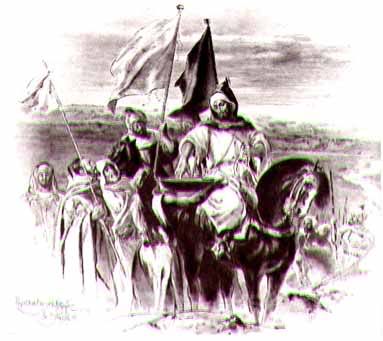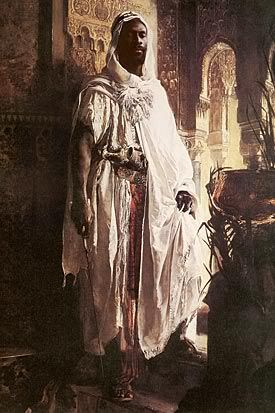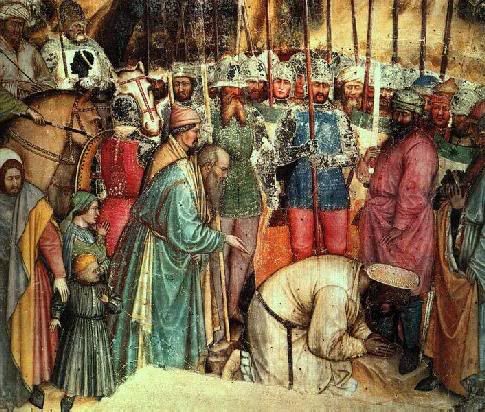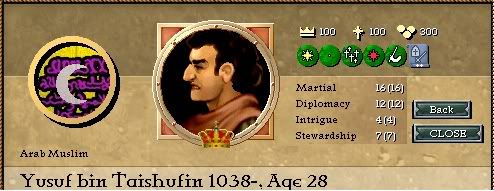Defenders of the Faith

The Berber kingdoms of North Africa were not carved by the native Berbers, but by African tribe soldiers from as far away as modern Senegal. The most powerful of these tribes were the Lamtuna’s. These hardy warriors, hailing from southern Sahara desert, were converted to Islam in the 7th century by invading armies of Arabs. In 1040 their great leader Yahya ibn ibrahim made a pilgrimage to the holy city of Makkah (Mecca) his preaching did not go well with the other Lamtuna warlords, and Yahya retired to the Western parts of Sahara, to preach and eventually found the city of Aoudaghost.
Chief Yahya ibn Ibrahim retires to southern Sahara to preach

An important character in the early history of the Almoravids is the zealous imam Abdallah ibn Yasin who went on pilgrimage together with Yahya. The Berber warlords started to spread the ideas of Islam in North Africa without the help of Yahya who had proclaimed himself king of Aoudaghost in 1052.
Abdallah ibn yasin, a central character in the forming of the Almoravid dynasty

Eventually the leading warlords invaded the lands of Yahya and killed him, making Abdallah ibn Yasin’s brother,Abu-Bakr Ibn-Umar chief of the tribes. The leader of the tribes Abu-Bakr chose to unite the tribes under the name Almoravid meaning “men defending Islam”
the beheading of "King" Yahya ibn Ibrahim

Around 1055 Abu-Bakrs armies conquered the Atlas-Berber tribes and converted them to Islam making the Almoravids one of the major powers in North Africa. A few years later Abu-Bakr claimed to have heard Allah’s bidding in a vision, telling the war chief to subjugate and convert all of northern Africa and found many cities in the name of god. This lead to a campaign against the pagan Berber tribe Berghouata, as the battle raged, Abdullah ibn Yasin wanted to show his men that he was a true servant of god and charged the lines of Berber warriors, eventually killing him before the battle was won. This lead to a great rage of his cousin, Abu-Bakr, who by the hooves of his soldiers horses, killed the wounded and captured soldiers of the enemy. After years of peace the great war chief Abu-Bakr died of ilness and the warlords chose to elect a new warlord, and the eventually a new dynasty of Berber Kings
The new leader,not a petty warlord or chief of a tribe, but King

Last edited:

